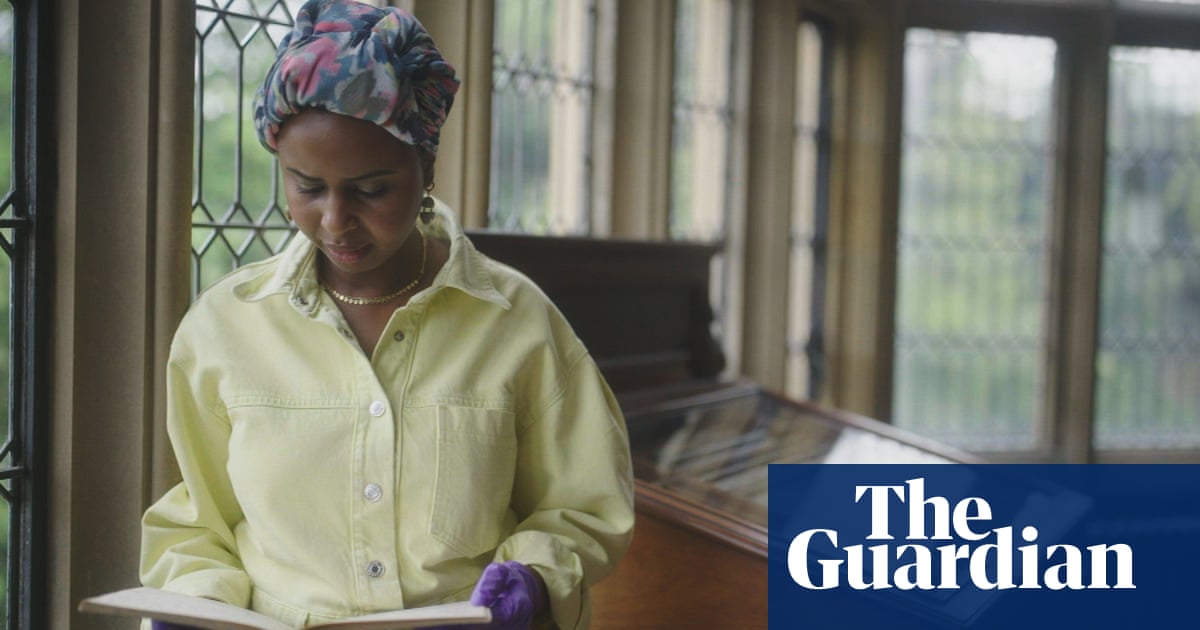
After facing backlash from a Booker prize-nominated author, a museum has decided to remove a stillborn Bambuti baby’s remains from its collection of items available for medical research.
Nadifa Mohamed, a novelist, will host a documentary on Channel 4 that delves into the past of “human zoos” in Britain. This exhibition of African and Asian individuals to the general public is now recognized as a highly discriminatory practice.
During the study, Mohamed examined the actions of explorer Col James Harrison. In 1904, Harrison brought a group of six individuals from the Bambuti ethnic group in Africa to Britain for a tour, which has since been referred to as a “human zoo.”
In 1906, a Bambuti woman named Amuriape gave birth to a stillborn girl in Bedford. Mohamed and the documentary team discovered that the remains of the baby are currently held at the Hunterian Museum, part of the Royal College of Surgeons in London. These remains are included in the museum’s collection and can be viewed for medical research purposes.
Mohamed stated that the film crew was appalled when they uncovered that the museum had the remains of a stillborn infant.
Mohamed expressed a belief that the baby would not simply be buried and forgotten. He suspected that some sort of action would be taken, and was disturbed to learn that the baby’s remains were still at the Hunterian for research purposes.
Mohamed stated that she had communicated with individuals from the Bambuti tribe in the Democratic Republic of Congo (DRC). These individuals were not aware that the stillborn baby had been left in the UK and was now being held by the museum. According to Mohamed, it is important in their culture for the baby to be buried in their own soil in the DRC for it to be at peace.
“I believe that in this situation, there is absolutely no justification for the Hunterian to retain her remains. It was most likely obtained without proper authorization and used as a mere object by the doctor. After nearly 120 years, she deserves the dignity of a proper burial.”
The Hunterian Museum is frequently promoted as an unconventional spot for a first date or a Halloween outing. However, I have reservations about this, particularly when it comes to the display of human remains such as a preserved stillborn in a jar. It is important for us to carefully consider how these remains are stored, exhibited, and handled, as we have inherited a Victorian era mentality that may not be suitable for modern times.
The Hunterian Museum reported that they were informed by the team and subsequently removed the baby from their collection, which was previously available for medical research. However, the museum is still in possession of the remains and has not made any decisions regarding repatriation to the DRC.
The Hunterian museum has been embroiled in controversy over its inclusion of human remains in its collection.
In the beginning of the year, the museum justified their choice to keep the remains of Charles Bryne, an 18th century Irish man who was 7ft 6in tall, even though they took it off public exhibition.
For a while now, activists, such as the deceased writer Hilary Mantel, have been urging for Byrne’s remains to be freed so they can be buried in accordance with his known desires.
According to a representative from RCS England Museums, the Bambuti stillborn infant’s remains have not been exhibited in their museums for two decades. However, the remains were accessible for legitimate medical research purposes.
The RCS England Museums have a set process for returning human remains. The initial step is for the request to come from a recognized representative body that follows the appropriate regional or national laws for repatriation of remains.
“Due to the sensitive nature of this situation, we are currently investigating the capabilities of the Bambuti representative who has been in communication with the documentary creators. In the meantime, we will make sure that no authorization for legitimate medical research involving the remains of the stillborn child will be granted.”
-
On Saturday, October 28th, Channel 4 will air a program called “Britain’s Human Zoos.”
Source: theguardian.com


